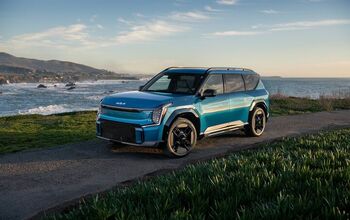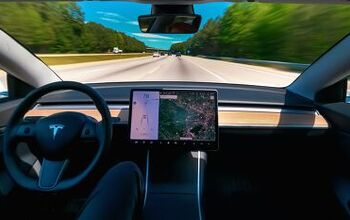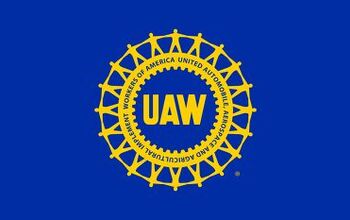Judge Gives Preliminary Approval to Volkswagen Settlement; Owners Have Two Years to File Claims

Volkswagen’s multi-billion-dollar make-nice deal with U.S. regulators and owners was given a tentative green light today, after a federal judge gave the settlement his preliminary approval.
The San Francisco hearing is the first of two, and approval of the $14.7 billion buyback and compensation plan could get a full go-ahead on August 25. The hearing shed light on what owners of defeat device-equipped diesels can expect in the coming months.
According to Nathan Bomey of USA Today, the size of the settlement shocked U.S. District Court Judge Charles Breyer. “I’ve never seen so many pages,” he remarked.
Volkswagen plaintiffs attorney Joe Rice said if things go according to plan, owners of 2.0-liter diesel VW and Audi vehicles have two years to settle their claims. That means a deadline of September 2018. Money will start flowing to owners in the fourth quarter of this year, he said.
40 Volkswagen employees will be tapped to oversee the buyback and compensation program, which includes $4.7 billion in environmental initiatives.
Bomey claimed that Breyer was especially fond of a clause that prevents polluting vehicles from being sold and sent overseas, calling it “one of the most important aspects” of the settlement.
David Shepardson, reporting for Reuters, tweeted that the automaker will offer extra cash (on top of the settlement sum) to forgive vehicle loans. According to Shepardson, the automaker will try to reach owners “through ads on Google, Facebook, Linkedin, Twitter and Instagram and dozens of newspapers.”
Owners of 2009 and later 2.0-liter diesel models can expect significant compensation. Volkswagen will buy back those vehicles at pre-scandal estimates and offer cash compensation totaling between $5,100 and nearly $10,000.
[Image: © 2015 Mark Stevenson/The Truth About Cars]

More by Steph Willems
Latest Car Reviews
Read moreLatest Product Reviews
Read moreRecent Comments
- Kwik_Shift_Pro4X I wonder if Fiat would pull off old world Italian charm full of well intentioned stereotypes.
- Chelsea I actually used to work for this guy
- SaulTigh Saw my first Cybertruck last weekend. Looked like a kit car...not an even panel to be seen.
- GregLocock Bear in mind this is purely a branding exercise and has no significant input from AM. Buying one of these is like buying a Pink Floyd T shirt, no Dave and Nick didn't personally sew it up for you.
- Lou_BC This is the sort of thing that lands 15 billion dollar Honda investments in Canada. One political party tries to undo everything the other one has done.


































Comments
Join the conversation
Here's a link to the Preliminary approval presentation that was shown in the court hearing today. It's confirmed that condition doesn't matter. http://bit.ly/2aomneI
I've posed the question about what happens if you crash your TDi between June 28 and the day VW settles with you, to one of the law firms involved with the class action suits; here is the verbatim response: As long as your vehicle is operable, you are eligible for the settlement. Under the settlement agreement, "Operable” means a vehicle that can be driven under its own 2.0-liter TDI engine power. Damage to your vehicle will not reduce the amount. Shelby Smith | Hagens Berman Sobol Shapiro LLP | Direct: (206) 268-9370 Sent: Wednesday, July 27, 2016 11:07 AM To: Shelby Smith Cc: Joseph Salonga Subject: RE: VW buyback So the sine qua non is that the car must be driveable? From: Shelby Smith [mailto:shelby@hbsslaw.com] Sent: Wednesday, July 27, 2016 2:06 PM Cc: Joseph Salonga Subject: RE: VW buyback Under the settlement, if your car is totaled (and the title transferred to an insurance company) after June 28, 2016, you are excluded from the settlement class and reserve your rights and claims against VW. Depending on the amount of damage to your vehicle, you may want to keep the vehicle and turn it in to VW when the time comes. A Salvage brand after 9/18/2015 will not affect your right to compensation. In terms of repairing it, you only need to repair it sufficiently that it can be driven. There is no point in doing detailed bodywork or paint, for example. Shelby Smith | Hagens Berman Sobol Shapiro LLP | Direct: (206) 268-9370